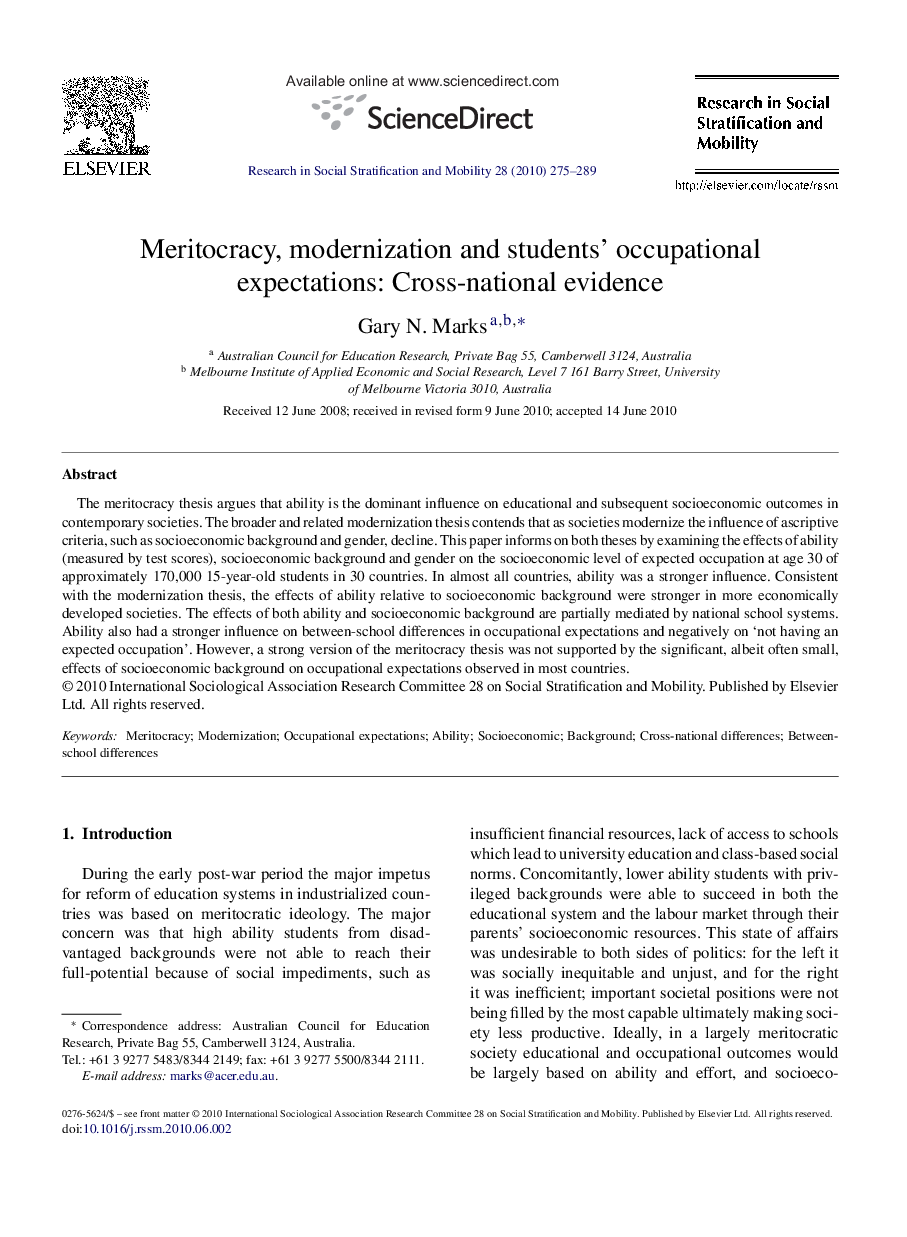| Article ID | Journal | Published Year | Pages | File Type |
|---|---|---|---|---|
| 999655 | Research in Social Stratification and Mobility | 2010 | 15 Pages |
The meritocracy thesis argues that ability is the dominant influence on educational and subsequent socioeconomic outcomes in contemporary societies. The broader and related modernization thesis contends that as societies modernize the influence of ascriptive criteria, such as socioeconomic background and gender, decline. This paper informs on both theses by examining the effects of ability (measured by test scores), socioeconomic background and gender on the socioeconomic level of expected occupation at age 30 of approximately 170,000 15-year-old students in 30 countries. In almost all countries, ability was a stronger influence. Consistent with the modernization thesis, the effects of ability relative to socioeconomic background were stronger in more economically developed societies. The effects of both ability and socioeconomic background are partially mediated by national school systems. Ability also had a stronger influence on between-school differences in occupational expectations and negatively on ‘not having an expected occupation’. However, a strong version of the meritocracy thesis was not supported by the significant, albeit often small, effects of socioeconomic background on occupational expectations observed in most countries.
